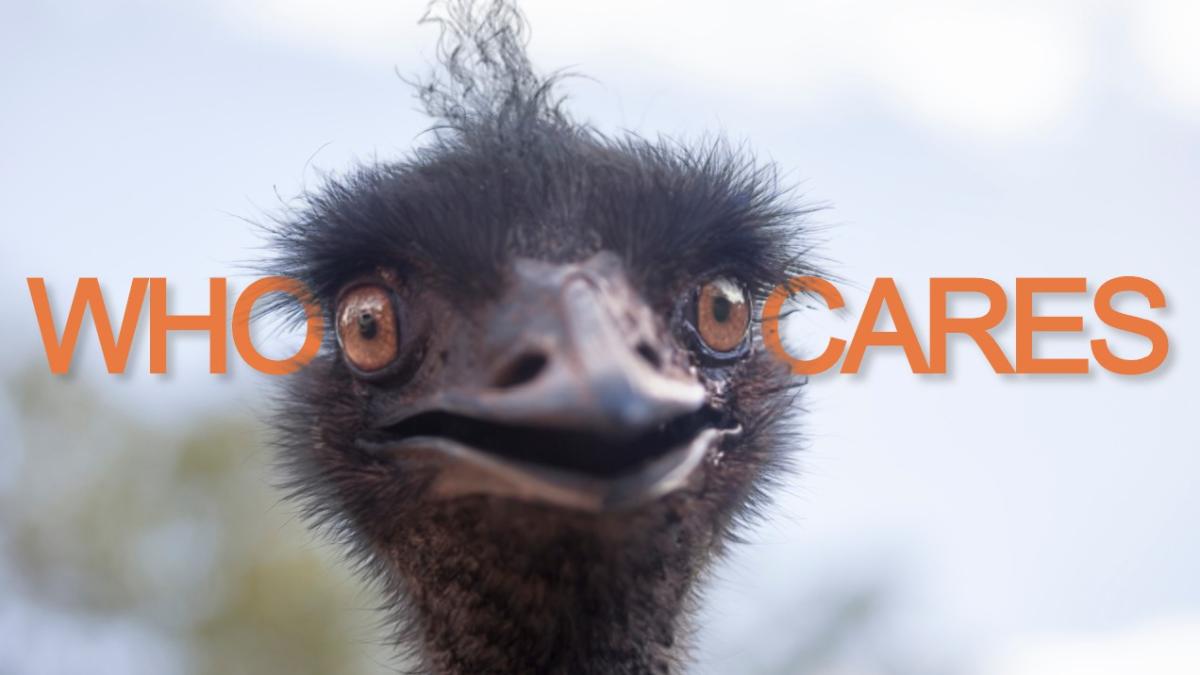
The Americans have decided to pronounce ’emu’ as ’emoo’.
Yes, it’s a lot to take in. No, not everybody is chuffed about the news. We’ll get to them in a moment, but first, here’s how a giant bird brought us to the brink of an international conflict.
Stu Rushfield, a technical director at US broadcaster National Public Radio (NPR), appeared on the air Saturday with the story of Winston Charles Featherbill, an emu who escaped his enclosure in the state of Maryland.
Thankfully, the big boi was located and returned home. The drama didn’t end there, though. During the broadcast, Rushfield pronounced ’emu’ without the ‘you’ sound commonly used in Australia, instead turning the second syllable into ‘moo’.
His spin on the word evidently caused some commotion at the broadcaster, as Rushfield later took to Twitter to confirm that NPR officials came to a final verdict on the word’s pronunciation. According to them, ’emoo’ is fine.
BIG EMU NEWS! After discussions with editors &the NPR RAD team (Research, Archives & Data), the ruling is that ee-moo wins!! The OED’s pronunciation favors ee-mew, this is one of the common words for which NPR doesn’t have a standard pronunciation for, & ee-moo is acceptable. pic.twitter.com/0K0gdyuGqB
— Stu Rushfield: #Kindness (@stu_rush) August 21, 2020
That tweet sparked a further response from Australian journo types, who, it must be said, love nothing more than feigning surprise at the existence of regional dialects.
So, what exactly is going on here? Is the standard Australian pronunciation so obviously correct that it needs defending by the Australian Volunteer Etymologists Corps?
Tiger Webb, a digital producer for Australia’s own Radio National and an expert attached to ABC Language, says it’s… fine, actually.
He pointed to the natural shifts in how some vowel sounds are pronounced over time, pointing to ‘blue’ and ‘rude’ as key examples.
yod dropping is common in many american varieties of english (e.g. news, tune, tutor). but it is also variable in AU/UK varieties (e.g. in words like “assume”). and total in east anglia, where apparently “beauty” and “booty” are homophones
— Tiger Webb (@tfswebb) August 24, 2020
Vowels change! Language changes! When words arrive in new languages, prior pronunciation norms can be applied! It happens, and being a prescriptivist about the whole situation rarely helps anybody (a fact I’m trying to internalise myself, as I continue my years-long quest to update the PEDESTRIAN.TV Style Guide).
There’s more to this one, too.
While we’re broadly aware of the term emu in Australian English, it’s not a ubiquitous term in Indigenous languages – and that’s not where the word ’emu’ comes from, anyway.
In Bininj Kunwok and Dalabon, ‘Ngurrurdu’ is used; Noongar speakers use ‘Weitj’. Such examples literally exist across the map.
So, where did ’emu’ come from, in the first place? That’s not entirely clear, although the Australian Museum posits it may have emerged from Portuguese, or even Arabic.
Let the Americans say ’emu’ how they please, I reckon.
Still care about this one? Watch Rushfield’s chat with ABC News Breakfast this morning:
US broadcaster @stu_rush sent shivers down the spines of Australians this week when he pronounced emu as “emoo” in a news report.@LisaMillar wasn’t having it.
So she invited Stu and the emu owner in question, Cassandra Redding, on to set the record straight…. pic.twitter.com/NXZbZ61vch
— News Breakfast (@BreakfastNews) August 25, 2020



